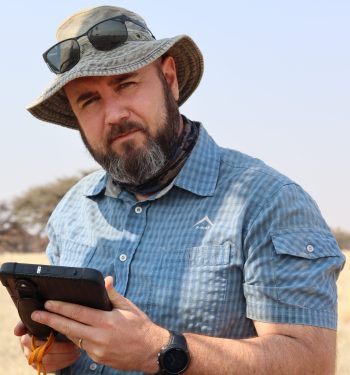Spotlight on LMICs – The Future’s Juggernaut: Positioning Research as Anchors for Environmental Health
 As the global population grows, the well-being of modern human societies continues to be dependent on available natural resources. Many regions are facing and attempting to mitigate the impacts of increasingly frequent and damaging climatic events including heat waves, extended droughts, storms, or changes in rainfall distribution and intensity. An enhanced understanding of fundamental processes should be used to discern best practices, guidelines, regulations, or policy briefs that are the basis of mitigation and/or adaptation measures. However, there are notable knowledge gaps in research with those issues magnified in underrepresented regions.
As the global population grows, the well-being of modern human societies continues to be dependent on available natural resources. Many regions are facing and attempting to mitigate the impacts of increasingly frequent and damaging climatic events including heat waves, extended droughts, storms, or changes in rainfall distribution and intensity. An enhanced understanding of fundamental processes should be used to discern best practices, guidelines, regulations, or policy briefs that are the basis of mitigation and/or adaptation measures. However, there are notable knowledge gaps in research with those issues magnified in underrepresented regions.
Dr. Gregor Feig set out to summarize the development of Research Infrastructure (RI) over the last three decades in Southern Africa and take it a step further by assessing how the successful maintenance and further implementation of RIs may turn them into important anchor points for the positioning and long-term development of environmental scientific work in support of environmental sustainability, national commitments, and societal well-being. The study also outlines the importance of understanding the impact on the environment, science, and society that a fully functional RI is able to cause and provides an example of potential key indicators using the Integrated Carbon Observation System as a model:
- Producing standardized high-precision long-term observational data
- Stimulating scientific studies and modeling efforts and providing a platform for data analysis and synthesis
- Communicating science-based knowledge toward society and contributing timely information relevant to the greenhouse gas policy and decision making
- Promoting technical developments
- Ensuring high visibility of the RI
As large amounts of data are required across a broad range of intersecting disciplines to effectively address emerging global challenges, the impact of this study can provide the framework for the use of RIs to mitigate the impact on environmental health.
Dr. Feig is a part of the Integrated Land Ecosystem-Atmosphere Processes Study (ILEAPS) Global Research Network of Future Earth. He has done research in the fields of air quality management, biogeochemistry, climate change impacts and land-vegetation-atmosphere interactions and is focused on the management of observation infrastructure. Dr. Feig is a Manager at the South African Environmental Observation Network (SAEON).
Feig, G., Brümmer, C., Maluleke, A., Midgley, G. (2024). Research Infrastructures as Anchor Points for Long-Term Environmental Observation. In: von Maltitz, G.P., et al. Sustainability of Southern African Ecosystems under Global Change. Ecological Studies, vol 248. Springer, Cham. https://doi.org/10.1007/978-3-031-10948-5_30
Do you have a recent publication within the Global South that you would like spotlighted? Share your publication with Makyba Charles-Ayinde for a possible feature!
DATE
February 27, 2024AUTHOR
Makyba Charles-AyindeSHARE WITH YOUR NETWORK
RELATED POSTS
Spotlight on LMICs – Getting Up To Speed on the Pacific Islands: A Plan for Resilience
Spotlight on LMICs – Tired of Breathing in Pollutants? Time for Better Fuel Economy and Vehicle Standards
Spotlight on LMICs – Need Some Inexpensive, Readily Available Minerals? How About Periwinkles